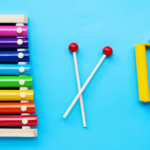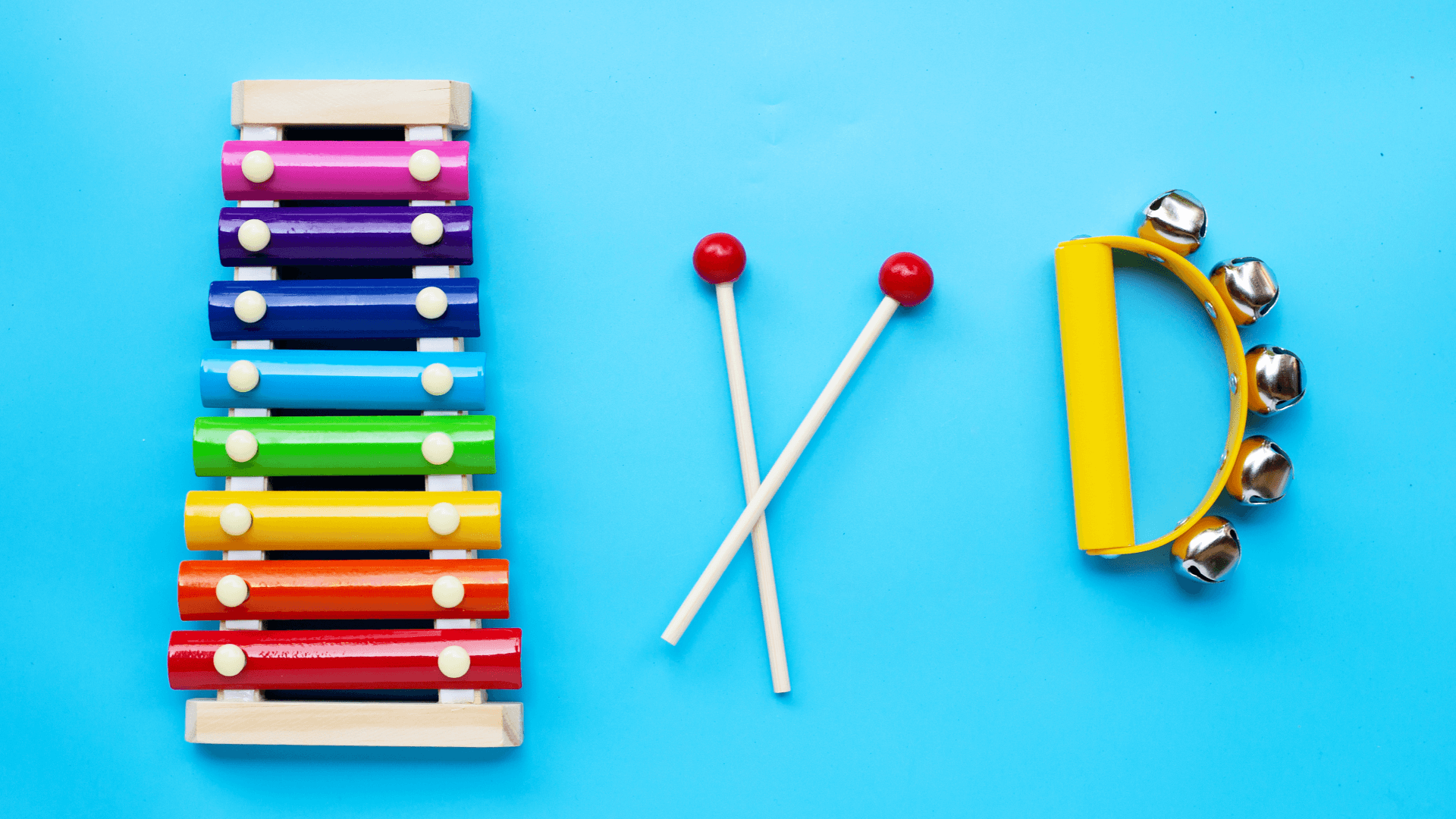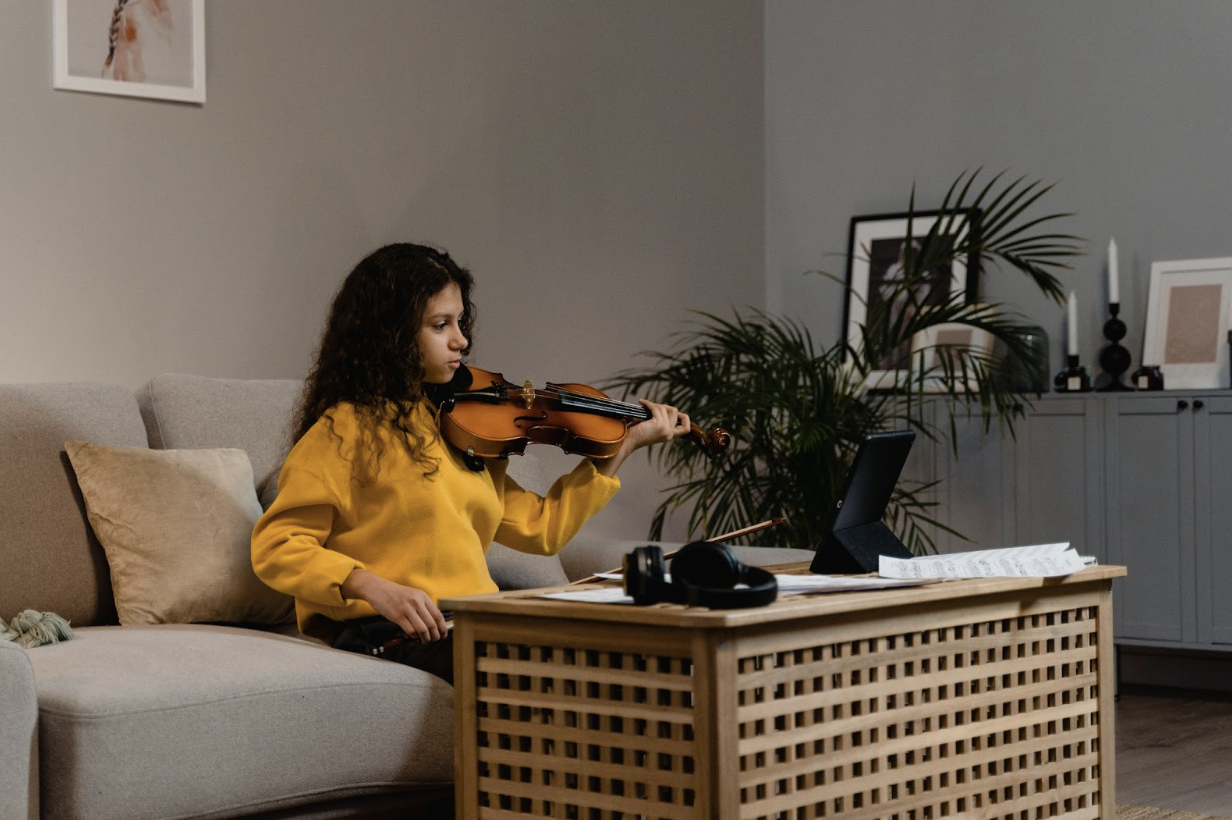Choosing the Right Instrument for Your Child6 min read
Every parent always wants the best for their child, and this affects every little decision they make. If you are a parent who is looking to enroll your child in music lessons and you are wondering which instrument would be the perfect fit for them, then you’ve come to the right place.
There are a number of things to consider when choosing an instrument for your child. But before you begin to worry about all of that, the important question to ask is whether learning a new instrument will even prove beneficial for your child at all. And the answer is a big YES! Children who have the opportunity of learning a musical instrument from a young age greatly benefit from the experience.
Contents
What is the Importance of Music Education?
Learning a musical instrument goes above and beyond merely picking up a new skill. Yes, it is pretty awesome for your child to have an added advantage or a different skillset from the rest of the crowd, but enrolling your child in music classes has many more benefits than just that.
Various studies have shown that music has a number of positive effects on the human mind and body, as well as on human relationships in general. Music education tremendously benefits young children in a number of different ways. One of the most prominent benefits of music is that it helps in brain development. Children who learn to play a musical instrument from a younger age tend to have a boost in their brain growth. And as their brain grows and develops, so does their memory, creativity, emotional skills, critical thinking, language skills, and social skills, among many others.
A child will be able to pay more attention in class as well as perform better academically. His listening skills, as well as reading skills, will improve as he learns an instrument. Since music helps in boosting memory, your child will be better at math, and mental math along with other subjects taught in school. Learning an instrument takes discipline and patience. Thus, kids learn to be more disciplined in other areas of their lives too.
Music education also helps young learners gradually understand how to identify different patterns, how to think on their feet, and handle anything that comes their way. Their critical thinking and problem-solving skills get polished as well. Music education is extremely helpful to your children, and the benefits will stay with them for a lifetime.
What should you consider when choosing an instrument for your child?
Since music education can be so advantageous for children, enrolling them in music lessons will definitely do them a world of good. But it is imperative for you to choose the right instrument for your child. And in order to do that, you will need to consider the following points.
-
Child’s Preference
This is probably the first and most important thing to consider. If your child shows a desire to learn a particular instrument, don’t discourage him just because you personally don’t find it interesting. Letting your child have the first say in what instrument he would like to learn is crucial because, at the end of the day, he is the one who’s going to play it.
If your child needs some help, take him to a music store and let him try out a few instruments that might catch his eye. You can also show him videos wherein different instruments are played or take him to a music concert so he can see how each instrument is used.
-
Age
Age is another thing you should consider before picking an instrument for your child. As kids grow, so will their size, height, and physical strength. Depending on these factors, you can decide whether they will be more comfortable with smaller or larger instruments.
For children who are below the age of four, you can think of getting a child-sized drum kit so that they can learn coordination and rhythm and move on to another instrument as they grow up. Many music experts have said that six years is a good age to begin learning any instrument, and at this age, it is usually advised to let your child learn the piano or the violin. Instruments like the cello or the tuba are pretty heavy, and unless your child has reached a particular age or has the physical strength for it, don’t burden her with these.
-
Child’s Personality
Another important point to keep in mind is your child’s personality. If your child is more reserved, then he/she might prefer to learn the piano. On the other hand, children who love to be the center of attention might like the electric guitar or the trumpet. However, this is not true for every child, and your child might surprise you, so don’t restrict their possibilities.
Some children enjoy loud instruments like the drums while others will be happy with something quieter like the violin.
-
Child’s Style
Your child’s music style, as well as taste in music, can also be a great determiner of what instrument would suit them best. For instance, if your child seems to be interested in jazz, pop, or rock, maybe they’d love the guitar or even an electric guitar. While if he/she loves all kinds of music, then the piano or keyboard might be a good call. On the other hand, children who love very soulful music, jazz, or funk will do great on any brass instrument like the trumpet.
-
Family Budget
Your budget is something you will definitely need to take into consideration. If you want your child to really go a long way with his instrument, then that’s going to call for long-term monetary investment from your end. Learning and even mastering an instrument takes years, and if your child is going to be committed to it, you will have to plan it out well in advance.
Younger children have likes and preferences that are constantly changing, so if you don’t want to spend a lot on an instrument because your child might want to move on to a new one a few years down the line, then you can also consider buying second-hand instruments.
Conclusion
Finding the perfect instrument for your child is crucial, and this is a unique skill that only a parent can develop. Keep in mind that your child’s instrument should be one that he loves and is interested in. Please don’t pick out an instrument that you like, but your child doesn’t because that defeats your whole purpose. At the end of the day, it is important that you don’t put too much pressure on yourself as a parent. You know that you have your child’s best interests in mind, so no matter what, believe that you will be successful in choosing the right instrument for him/her!





